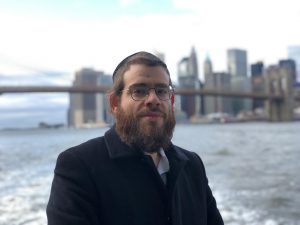
A few weeks ago, I had the opportunity to interview Eli Steinberg, a rabbi and writer active in Jewish communal politics in Lakewood, NJ (the center of Yeshivish haredi life in America). Alongside writing about Jewish communal issues, he has also written on broader aspects of American politics and policy. I know Rabbi Steinberg through my research on haredi education and culture, having spent many years looking at how haredi communities navigate secular and religious knowledge and culture in schools, and how haredim develop an epistemology and world view through a close school/community relationship.
In my research, I observe classes, and talk to teachers and students, as well as to members of the broader haredi community. In that capacity I have often used the insight and perspective of a number of haredi insiders who are deeply connected to the pulse of their respective communities. Rabbi Steinberg is one of those insiders—someone who is involved in haredi communal affairs and is able to articulate his perspective using modes of discourse more common to the secular world. In a way this is the inverse of my position. As an academic working at a research institution, I am entrenched in nonharedi society, but I am able to engage with haredim using the language and discourse of haredi life. I believe that this partnership has allowed me to characterize insider perspectives with a great deal of fidelity, to understand the experiences of haredim, as well as the underlying dynamics of haredi world-view development.
Because COVID-19 has so significantly impacted the haredi community, and because of the attention haredim have received in the popular press, I wanted to speak to Rabbi Steinberg to understand how the Yeshivish haredi community in Lakewood has experienced the virus. Prior to our interview he sent me a short written piece describing his perspective on this issue.

In this piece he discussed the explosion of cases (and deaths) in Lakewood following Purim celebrations in March that led to a tremendous viral spread. He wrote about how the communal rabbinic leadership shut down synagogues and schools, despite the centrality of Torah study to this community’s sense of self. He further described the sense of confusion that permeated the community, as updates on the virus came via “cholim lists,” which list the Hebrew names of the ill so that community members could pray for them. Finally, he focused on the degree of antisemitism community members faced, as Orthodox Jews as a whole were held responsible for the actions of a few scofflaws, and Jews once again found themselves accused of bringing the plague to their gentile neighbors.
One of the central concerns I had in the interview was to understand how information moved through the community, and how community leaders and members made decisions in response to the virus. This, in particular, helps us understand how haredim are navigating the desire to open up with the desire for public safety, something that many outsiders have questioned. Are they opening up schools and shuls too soon? Are small businesses violating orders? In response, many haredim wonder why they have been singled out. Why, for example, are police officers so quick to shut them down, while leaving others alone? They feel that they have been treated with a double standard. These concerns provide a subtext to our conversation below, as Rabbi Steinberg both describes and defends his community as an insider who has deep connections to the outside world of politics and policy. Acutely aware of the sometimes-negative perception of haredi communities in many circles, Rabbi Steinberg took pains to point out that his community responded much like any other community: with confusion, fear, and the desire to protect themselves from the virus. These desires, however, were expressed in a decidedly haredi register.

